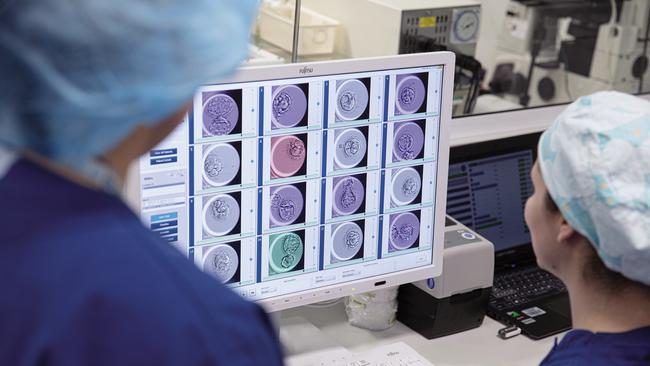BGH Capital takes London’s CapVest to takeovers panel in Virtus IVF fight
BGH wants the takeovers panel to review the exclusivity period and break fee arrangements struck between rival CapVest and IVF provider Virtus.

Ben Gray’s BGH Capital has taken London-based rival, CapVest, to the takeovers panel in the battle for Australia’s biggest IVF provider, Virtus, in what it says is an attempt to level the playing field.
BGH has taken umbrage at the exclusivity period Virtus granted CapVest to complete due diligence as well as the $4m break fee, claiming it is uncompetitive, among other elements of the deal.
But the timing is unusual. The application to the takeovers panel – made on Wednesday – comes almost two weeks after CapVest trumped BGH’s bid by 50c a share, enough for Virtus to grant the overseas private equity firm an exclusivity period to complete due diligence, which effectively expires next week.
CapVest – which has more than €5bn ($7.90bn) in assets under management – made a cash offer of $7.60 a share or $650m to buyout Virtus. This compares with BGH’s pre-Christmas bid of $7.10 a share, or $607m.
Virtus’s board also agreed to pay a fee of $2m to CapVest if it provides a fully documented, financed and binding offer. That fee increases to $4m if the Virtus board recommends a superior competing proposal within an agreed time frame.
Sources close to the deal say the fee is at the lower end of the market, representing about 0.5 per cent of the enterprise value. This compares to a 0.75 per cent break fee for the Sydney Airport takeover. And the fee came after the Virtus board was able to extract a higher offer – $43m more than BGH’s – from CapVest.
BGH has been approached for comment.
It comes after the takeovers panel criticised the exclusivity period Ausnet’s board granted suitor Brookfield late last year. But unlike that deal, a fiduciary out clause kicks in after three weeks in the arrangement struck between Virtus and CapVest, effectively reducing the exclusivity period from 40 to 15 days, or the end of next week.
If that clause is activated, it allows Virtus to enter talks with BGH – which has amassed a near 20 per cent shareholding in the company – to drum up a potential superior offer.
BGH has been keen to invest in health, vying for Australia’s second biggest private hospital operator Healthscope in 2019. But it lost to Canadian investment manager, Brookfield, which bought Healthscope for $4.4bn in June that year.
When it made its offer for Virtus last month, BGH announced it had already acquired 10 per cent of the company at $7.10 a share and had entered into a total return swap with UBS to acquire another 10 per cent. BGH also flagged that it would offer a cash and scrip alternative to major fertility specialist shareholders and certain other affiliated shareholders to enable them to continue their investment in Virtus, which runs IVF Australia, Melbourne IVF and Queensland Fertility Group.
It is understood that BGH is also looking to bulk up Virtus via acquisitions, most likely in Singapore and Ireland, where it already operates clinics. Bulking up Virtus in Australia remains challenging, as evidenced by the recent opposition it faced from the Australian Competition and Consumer Commission when buying smaller IVF provider Adora from Healius for $45m.
While CapVest – founded 22 years ago – has proposed to acquire 100 per cent of Virtus, it has also said it is willing to pursue an alternative arrangement that would need 50.1 per cent acceptance of Virtus shareholders.
It has several healthcare investments, including leading pharmaceutical contract development and manufacturing company, Next Pharma, and nuclear medicine firm Curium.
CapVest has a minimum investment horizon of four to five years but has held some investments for more than 10 years, such as Valeo Foods. It is understood that the firm is prepared to commit significant new investment to help scale businesses in areas including research and development, launching new products and services and further international expansion.





To join the conversation, please log in. Don't have an account? Register
Join the conversation, you are commenting as Logout